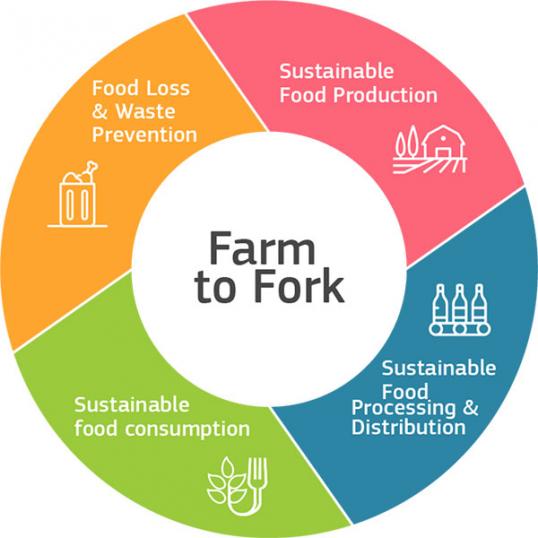
Branding Bonanza! “Farm to Fork” Concept Flourishes in AgribusinessBranding Bonanza! “Farm to Fork” Concept Flourishes in Agribusiness In the ever-evolving world of agriculture, the “farm to fork” concept has emerged as a beacon of transparency, authenticity, and unwavering support for local farmers. This branding strategy has propelled the agribusiness industry to new heights, offering consumers a tantalizing glimpse into the journey of their food from seed to plate. Tracing the Culinary Journey The “farm to fork” concept emphasizes the direct connection between food producers and consumers, allowing customers to trace the provenance of their meals. By partnering with local farms and ranches, restaurants, retailers, and food processors can showcase the stories behind their ingredients, highlighting the hard work and dedication of those who nurture the land. Authenticity at its Core In an era where consumers demand transparency, the “farm to fork” concept delivers authenticity in spades. By reducing the distance between growers and consumers, it cuts out the middlemen and ensures that the food on our plates is free from unnecessary additives, preservatives, and processing. This authenticity fosters trust and builds a genuine connection between the food industry and the public. Economic Empowerment for Farmers The “farm to fork” concept is not merely a marketing ploy; it also represents a significant economic opportunity for local farmers. By eliminating the need for multiple middlemen, farmers can capture a larger share of the profits from their hard work. This financial empowerment enables them to invest in sustainable practices, ensure fair wages for workers, and build a stronger, more resilient local food system. Environmental Sustainability Embracing the “farm to fork” concept also promotes environmental sustainability. By reducing transportation distances, it lowers carbon emissions associated with the food supply chain. Additionally, the focus on local sourcing encourages the use of regenerative farming practices that protect soil health, conserve water, and reduce the reliance on synthetic chemicals. Brand Differentiation and Marketing Advantage In today’s competitive food market, the “farm to fork” concept provides businesses with a powerful brand differentiator. Consumers are increasingly drawn to brands that align with their values of transparency, authenticity, and environmental consciousness. By embracing this concept, businesses can set themselves apart and build a loyal customer base. Conclusion The “farm to fork” concept has transformed the agribusiness industry, empowering consumers with knowledge about their food, supporting local farmers, promoting environmental sustainability, and providing businesses with a competitive edge. As the trend continues to flourish, we can look forward to a more transparent, authentic, and sustainable food system that nourishes both our bodies and our communities.
Posted inNews